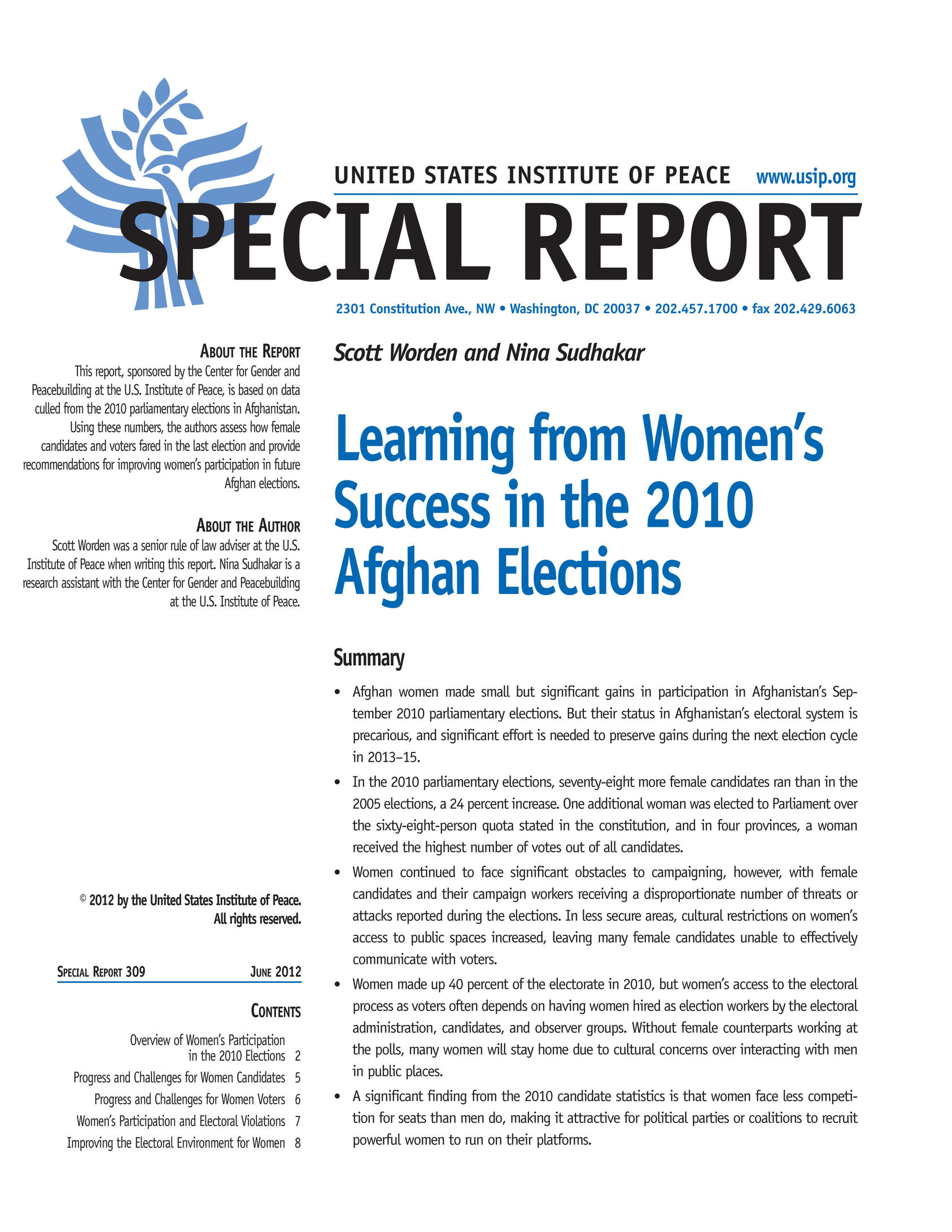Learning from Women's Success in the 2010 Afghan Elections
This report, sponsored by the Center for Gender and Peacebuilding at the U.S. Institute of Peace, is based on data culled from the 2010 parliamentary elections in Afghanistan. Using these numbers, the authors assess how female candidates and voters fared in the last election and provide recommendations for improving women’s participation in future Afghan elections.

Summary
- Afghan women made small but significant gains in participation in Afghanistan’s September 2010 parliamentary elections. But their status in Afghanistan’s electoral system is precarious, and significant effort is needed to preserve gains during the next election cycle in 2013–15.
- In the 2010 parliamentary elections, seventy-eight more female candidates ran than in the 2005 elections, a 24 percent increase. One additional woman was elected to Parliament over the sixty-eight-person quota stated in the constitution, and in four provinces, a woman received the highest number of votes out of all candidates.
- Women continued to face significant obstacles to campaigning, however, with female candidates and their campaign workers receiving a disproportionate number of threats or attacks reported during the elections. In less secure areas, cultural restrictions on women’s access to public spaces increased, leaving many female candidates unable to effectively communicate with voters.
- Women made up 40 percent of the electorate in 2010, but women’s access to the electoral process as voters often depends on having women hired as election workers by the electoral administration, candidates, and observer groups. Without female counterparts working at the polls, many women will stay home due to cultural concerns over interacting with men in public places.
- A significant finding from the 2010 candidate statistics is that women face less competition for seats than men do, making it attractive for political parties or coalitions to recruit powerful women to run on their platforms.
About the Report
This report, sponsored by the Center for Gender and Peacebuilding at the U.S. Institute of Peace, is based on data culled from the 2010 parliamentary elections in Afghanistan. Using these numbers, the authors assess how female candidates and voters fared in the last election and provide recommendations for improving women’s participation in future Afghan elections.
About the Authors
Scott Worden was a senior rule of law adviser at the U.S. Institute of Peace when writing this report. Nina Sudhakar is a research assistant with the Center for Gender and Peacebuilding at the U.S. Institute of Peace.



